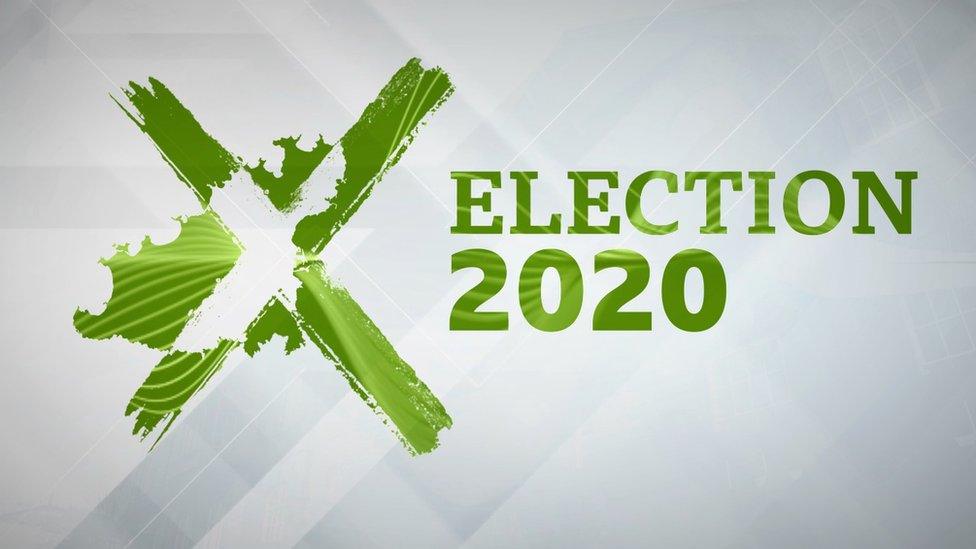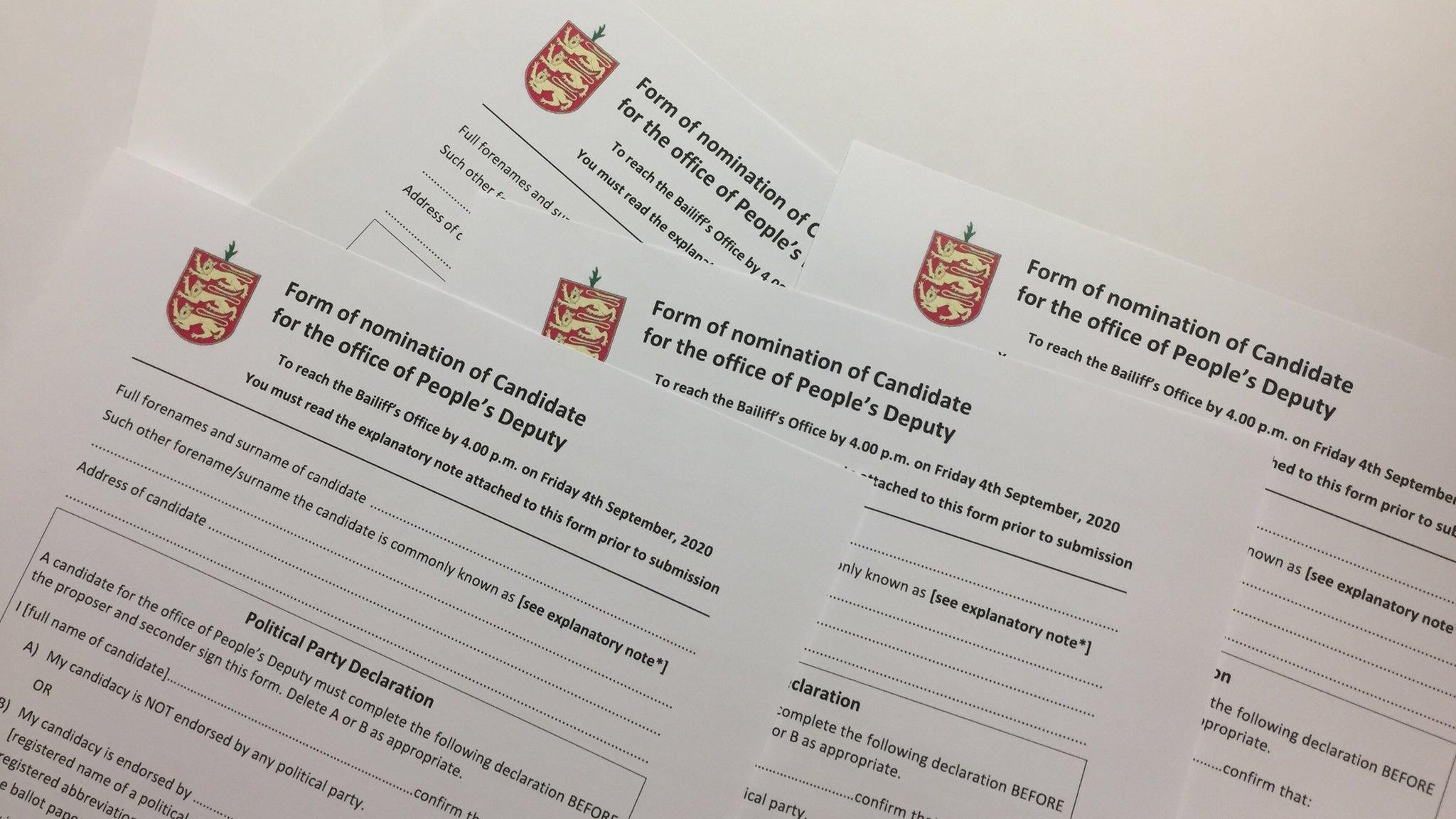Guernsey Election 2020: Secondary education model
- Published

The reform of secondary education in Guernsey has been a significant and controversial issue for years.
In March, the States voted to "pause and review" the agreed two-school model, external, which itself had been approved in 2018 as an amendment to an entirely different three-school proposal.
The delay was agreed after a public campaign against the two-school model.
The deadline for a report on possible models is the end of 2020, although this was agreed before the pandemic.
As part of the BBC's election coverage, we offered all candidates a chance to comment on a key issue.
In light of this ongoing controversy, they were asked: What is your preferred model for Guernsey's secondary education system and why?

Nicola Young said: "Three schools with a separate sixth form.
"The schools have grown big enough. This is having a detrimental effect on our children's mental health.
"Child and Adolescent Mental Health Service is overwhelmed, also a huge waiting list for services.
"We need to relearn the way we educate. We only cater for the academic. Bring back trades and practical teaching."

Rob Prow said: "This States has badly let the island down on education.
"Decisions have been ideologically driven without listening to people or the educational professionals.
"A new government must urgently find better and publicly accepted options.
"I have consistently argued for three community schools and one sixth form centre, which has historically obtained excellent results."

The Alliance Party responded: "Population, economics and support for smaller schools says three 11 to 16 schools.
"We want the review to be expanded to look at a hybrid with the top 50 academically strong to be set on an island-wide basis.
"We want the review to look at independent and a co-located sixth form college."

Jeremy Smithies said: "My preferred option would be a three-school model.
"I think we are heading for three 11-16 schools with a separate sixth form centre.
"This would be more suitable for the island's infrastructure and culture.
"Larger schools do not necessarily lead to a better outturn."

Paul Neuvel said: "I have always supported the three-school model and one college, as opposed to two schools. Reasons being:
Smaller classes will always be the superior education model
A more extreme pandemic in the future would very possibly cost more children's lives if there were just two schools
If one school burnt down, you then have just one available"

Clint Gardner said: "I support a three high school system using the Beaucamps, St Sampson's and La Mare sites with a separate sixth form on the current Grammar School site.
"Also, consideration needs to be given to those students with additional needs and there needs to be the option for families to home educate."

Liam McKenna said: "Three-school model with separate sixth form.
"Learning support teachers at St Sampson's and Les Beaucamps facilitating learning for dyslexia and children with special needs that should be included in main stream education.
"Full licence residency to the highest qualified teachers so our children can achieve to be the best that they can be."

Yves Lenormand said: "Too much emphasis has been put on the number of schools and what model should be chosen.
"Surely the children should be put first and as long as their needs and interests are being met then this should take precedence.
"Too many children do not fit the current schooling model."

Al Brouard said: "I voted against a one-school two-site model and voted for Pause and Review.
"The aim has to be about every child achieving their potential, to be the best they can.
"Three schools, in some form, would help achieve that and be of a more appropriate size for Guernsey."

Simon De La Mare said: "I have stated that I can see the merits in the two-school model, as I believe this provides the greatest opportunity for equality for pupils.
"I accept that a three-school model may have to be a compromise I would have to make if I am successful."

The BBC also offered the opportunity to answer this question to Barry Brehaut, Al Brouard (The Guernsey Partnership of Independents), Mark Fletcher, David Mahoney, Clive McMinn (The Guernsey Party) and Neil Shepherd.
The other key issues we've spoken to candidates on include:
- Published4 September 2020
